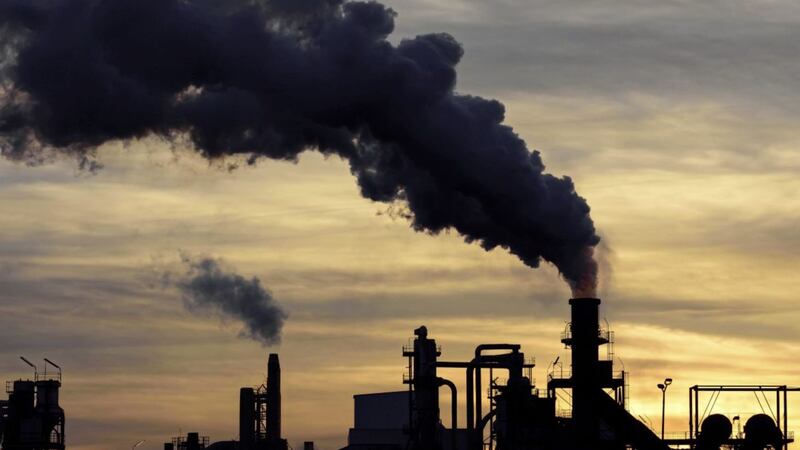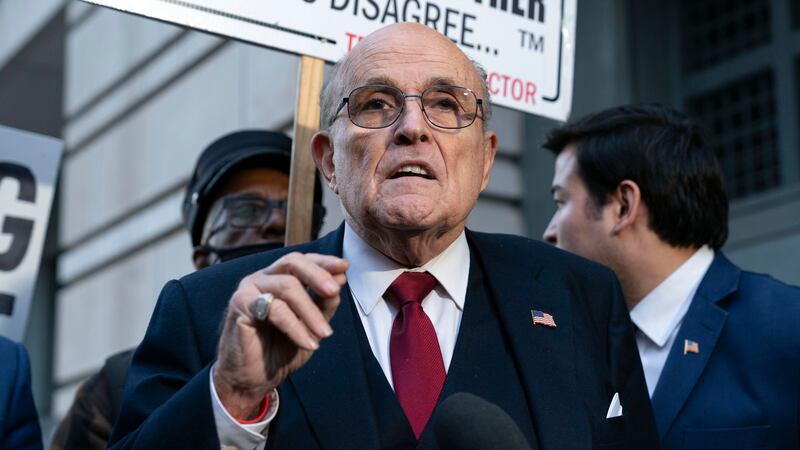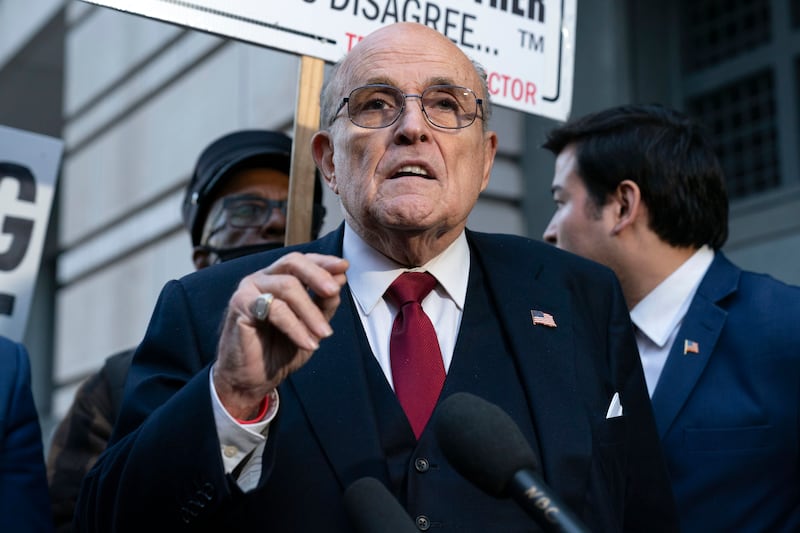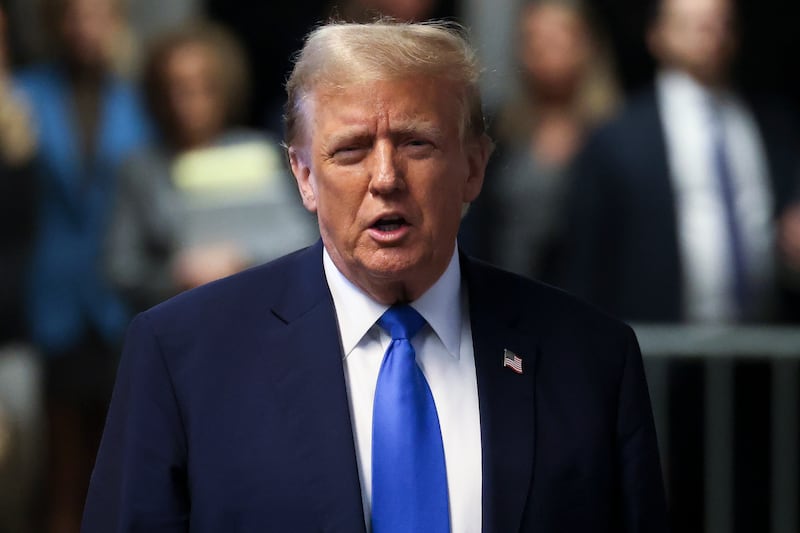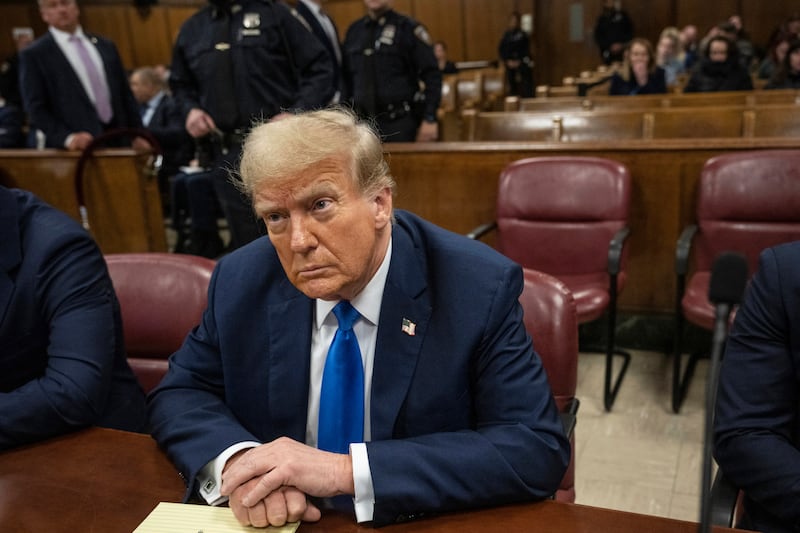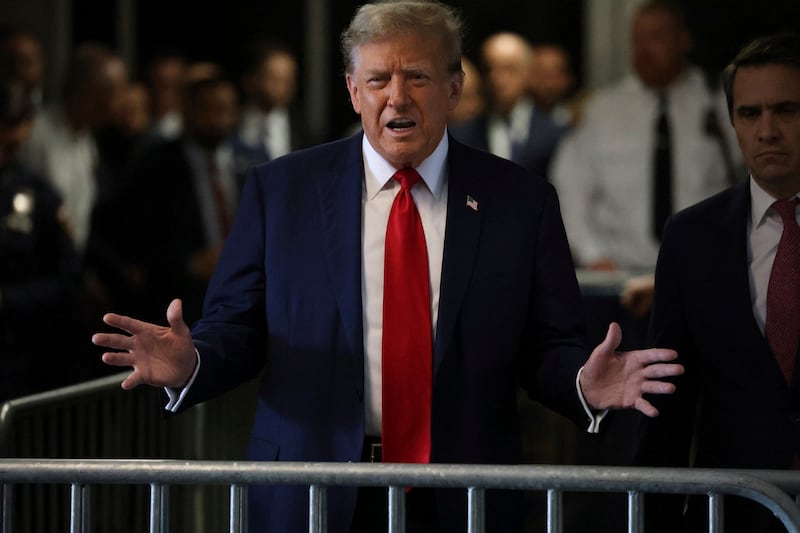Donald Trump is expected to sign an executive order that will suspend, rescind or flag for review more than half a dozen green measures in an effort to boost domestic energy production in the form of fossil fuels.
As part of a campaign pledge to unravel Barack Obama's sweeping plan to curb global warming, Mr Trump will initiate a review of the Clean Power Plan, which restricts greenhouse gas emissions at coal-fired power plants.
The regulation, which was the former president's signature effort to curb carbon emissions, has been the subject of long-running legal challenges by Republican-led states and those who profit from burning oil, coal and gas.
Mr Trump, who has called global warming a "hoax" invented by the Chinese, has repeatedly criticised the power plant rule and others as an attack on American workers and a struggling coal industry.
The contents of the order were outlined to reporters in a sometimes tense briefing with a senior White House official, who aides insisted speak without attribution, despite Mr Trump's criticism of the use of unnamed sources.
The official at one point appeared to break from mainstream climate science, denying familiarity with widely publicised concerns about the potential adverse economic impacts of climate change, such as rising sea levels and more extreme weather.
The administration will also lift a 14-month-old moratorium on new coal leases on federal lands.
The Obama administration had imposed a three-year moratorium on new federal coal leases in January last year, arguing that the $1 billion (£800 million)-a-year programme must be modernised to ensure a fair financial return to taxpayers.
Mr Trump accused his predecessor of waging a "war on coal" and boasted in a speech to Congress that he had made "a historic effort to massively reduce job-crushing regulations", including some that threaten "the future and livelihoods of our great coal miners".
The order will also chip away at other regulations, including scrapping language on the "social cost" of greenhouse gases.
It will initiate a review of efforts to reduce the emission of methane in oil and natural gas production as well as a Bureau of Land Management hydraulic fracturing rule, to determine whether those reflect the president's policy priorities.
It will also rescind Obama-era executive orders and memoranda, including one that addressed climate change and national security and one that sought to prepare the country for the impacts of climate change.
The administration is still in discussion about whether it intends to withdraw from the Paris Agreement on climate change, but the new moves will make it more difficult for the US to achieve its goals.
Mr Trump's Environmental Protection Agency chief, Scott Pruitt, alarmed environmental groups and scientists earlier this month when he said he does not believe carbon dioxide is a primary contributor to global warming. The statement is at odds with mainstream scientific consensus and Mr Pruitt's own agency.
The overwhelming majority of peer-reviewed studies and climate scientists agree the planet is warming, mostly due to man-made sources, including carbon dioxide, methane, halocarbons and nitrogen oxide.
The official who briefed reporters said the president does believe in man-made climate change.
The power-plant rule Mr Trump is set to address in his order has been on hold since last year as a federal appeals court considers a challenge by coal-friendly states and more than 100 companies who call the plan an unconstitutional power grab.
Opponents say the plan will kill coal-mining jobs and drive up electricity costs. The Obama administration, some Democratic-led states and environmental groups countered that it will spur thousands of clean-energy jobs and help the US meet ambitious goals to reduce carbon pollution set by the international agreement signed in Paris.
